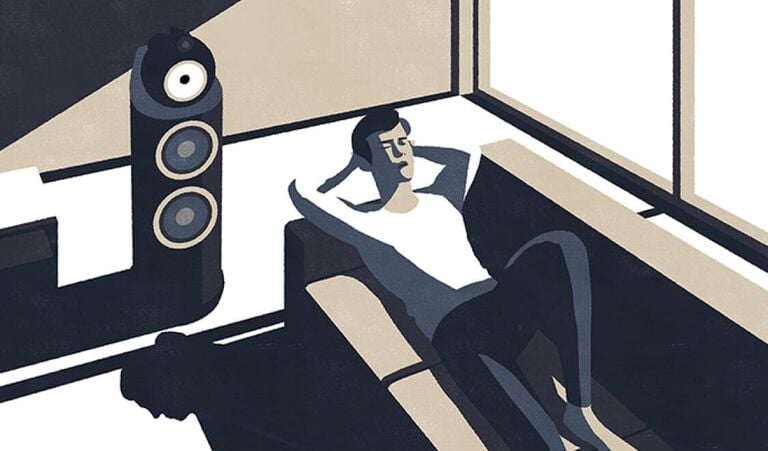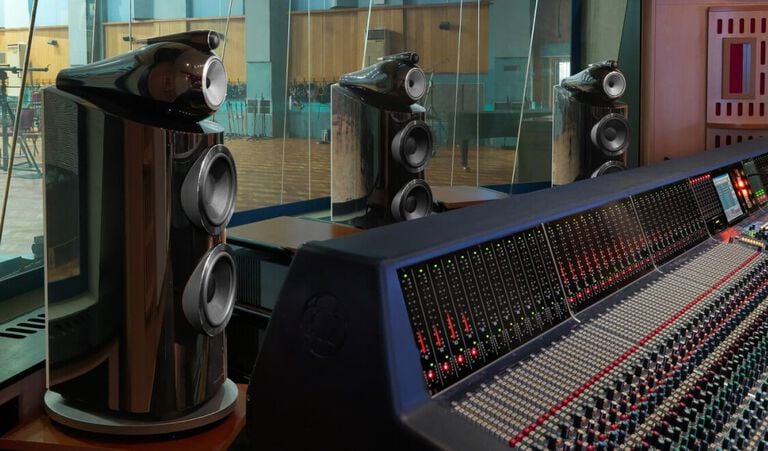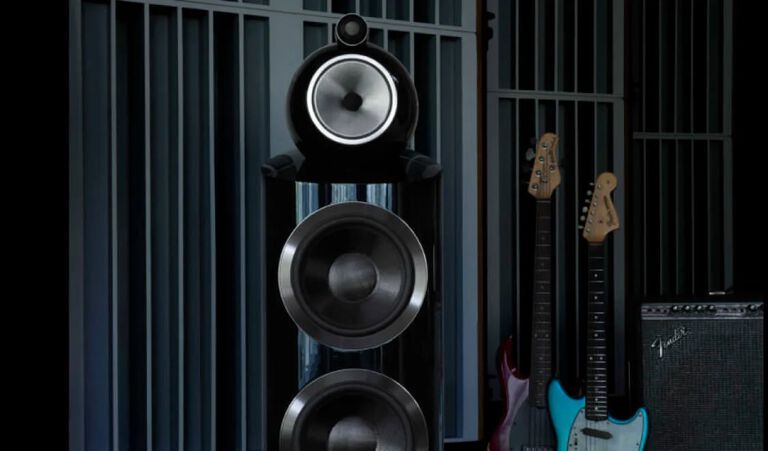Can music reduce stress?
Stress. Relaxation. A lot of people turn to music in relation to either of these things. But is it effective? With the help of science, history and music itself, we discover the real truth behind this age-old question: Can music reduce stress?

Let’s face it, at some point in our lives we’ve turned to music to help reduce stress – and the internet knows it. Simply search for words such as ‘chill’ or ‘relax’ on Spotify, and you will find a rich digital library of playlists devoted to our wellbeing and precious downtime.
From playlists labelled “Ambient Chill” to the more specific “Chill Lofi Study Beats” (we promise we didn’t make that one up), there’s no denying modern society’s penchant for wanting to literally turn up, tune in and drop out.
But why do we put our trust in this art form, and what genres do we gravitate towards most? And more importantly – can music reduce stress? There are a number of factors – some of which are more deep-rooted than you might think.
In Western culture, especially during ancient through to medieval times, music existed as an integral part of a religious society. Exclusively enjoyed by nobility behind closed doors in their courts and castles, it was an expensive, high-brow form of entertainment and incredibly sought after across Europe.
Fast-forward 500 years or so, and combined with the remarkable advent of technology, music has evolved into an eminently accessible art form, made even more reachable through streaming services such as Spotify, Tidal and Apple Music.
And unlike the nobility and church who paid composers and musicians for each performance back in the day, a small subscription fee a month for access to millions of tracks is an economically viable choice for those seeking instant relaxation in modern times.
So how does music make us feel more relaxed or de-stressed? We’ve turned to science for this one.
A study in New York examined the effect of music on surgical patients suffering with cataracts. Forty patients volunteered for a trial: all received ordinary care, however one half of the group listened to music through headphones before, during and immediately after the operations.
Just before surgery, the heart rates and blood pressure of all patients increased. However, the patients who were subjected to the sounds of the operating room remained in a state of heightened tension, while the pressure readings of patients who listened to music decreased rapidly and remained low in the recovery room – a promising result for music.
While the choice of music wasn’t disclosed in this study, we have evidence to suggest that different kinds of music also help to lower stress levels.
In another study, volunteers were assigned one of three different sonic conditions (relaxing music, rippling water and no acoustic stimulation) before being exposed to a stress test.
Interestingly, it was the sound of rippling water that produced the lowest stress levels compared to the other conditions, but the relaxing music was more effective in a faster autonomic (heart rate and blood pressure) recovery than both of the other controlled sonic conditions, proving that music can reduce stress.
Scientists found it surprising that natural sounds, like that of the rippling water, were interpreted by the volunteers’ brains as a relaxation tool. But on closer inspection, this response could be engrained in our very DNA.
This stems back to early human existence, where sounds of the natural world were once all a human could hear. Picture waking up to rustling leaves, a gentle stream or the sounds of birds. These sound-worlds from hundreds of years ago provide an insightful link to how humans perceive natural sounds today.
A genre like Biomusic blends natural sounds like animal noises and field recordings together with music, creating a supposed perfect combination for human ears.
And, according to an Italian study involving 24 volunteers, tempo also matters.
They found that slow or meditative music was far more effective at relaxing the subjects, while faster tempos produced a higher amount of arousal. However, immediately after the latter music stopped, heart rates and blood pressures fell to levels below usual, showing that music can reduce stress.
From stress relievers to sleep-inducers, in 2015 a contemporary classical composer Max Richter wrote and recorded an eight-hour long piece designed to be listened to over the course of a full sleep cycle.
Described in the album notes as an ‘eight-hour lullaby’, Richter conferred with American neuroscientist David Eagleman to learn about how the brain functions during sleep.
“We got talking about the various phases of sleep – the dreaming sleep and the various stages of deep sleep. There is also a particular area of sleep called slow-wave sleep, where the brain basically gets into step with itself and gets into this one single phase of these relatively slow brain waves – around 10 Hz or so – and the whole brain ‘fires all at once’.”
It is also scientifically proven that music reduces stress response during shut-eye.
In a study involving 10 critically ill postoperative patients under the influence of the sedative propofol whilst using breathing machines, half of the patients were played slow movements from Mozart piano sonatas.
The nurses reported that the patients in the controlled music setting required significantly less propofol to maintain sleep sedation than the other half who were not played the music. Lower blood pressures and heart rates, as well as lower stress hormones were found in conjunction with these results.
So can music reduce stress? Well it clearly plays a larger part in stress reduction than we might have thought. And while we know how it relieves us of stress, further exploration into the genres and sounds that facilitate this change could prove to be music’s next eureka moment.
Browse some of our related articles


